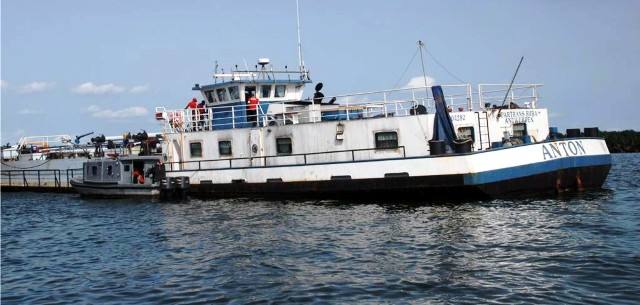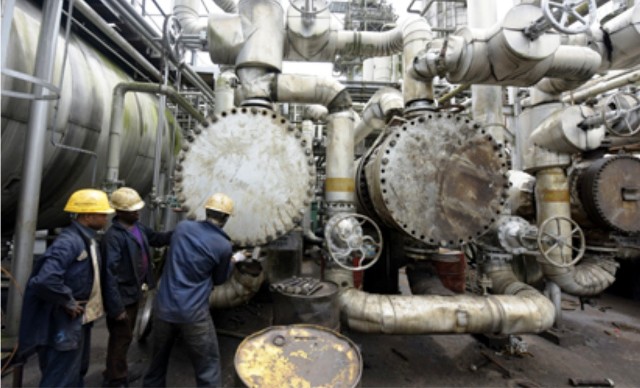Business
Navy Nabs 12 Boats, Three Trucks With N200m Stolen Products

The Nigerian Navy, at the weekend, said “Operation Dakata Da Barawo” (OPDDB), has intercepted N613million worth of stolen crude and illegally refined Automotive Gas Oil (AGO), also known as, diesel from oil thieves and other criminals in Niger Delta.
In a statement, the National Public Relations Officer, Nigerian Navy, Commodore Kayode Ayo-Vaughan, said the operation was an indication of the Nigerian Navy’s resolve to ensure zero tolerance for Crude Oil Theft (COT), illegal bunkering and other related economic crimes in the nation’s maritime area and the South South geopolitical zone in particular.
Ayo-Vaughan, however, warned economic saboteurs and sponsors to desist from unpatriotic and criminal acts in the region, saying N200million and $700,000 (N413million) worth of products were intercepted in two weeks.
“These arrests and seizures from the ongoing OPDDB have denied oil thieves and criminals of about N200 million and $700,000 worth of products within a period of two weeks. It is indicative of the Nigerian Navy’s resolve to ensure zero tolerance for COT, illegal bunkering and related economic crimes in the nation’s maritime area and the South South geopolitical zone in particular,” he said.
Giving a breakdown of the seizures made in the weeks under review, Ayo-Vaughan, said, “On 5th April, 2022, Nigerian Navy Ship (CNNS), Pathfinder in Port-Harcourt intercepted nine huge (‘Cotonou’) wooden boats laden with unspecified quantty of legally refined AGO at Andoki, Bille and other areas within her area of responsibility.
“Additionally, Illegal Refining Sites (IRS) with cooking pots, tanks and reservous were discovered at in Ketoru Creek. The Base also arrested two STARZ marine boats, DOROH 1 and DOROH 2 for providing illegal escort services within the Bonny martime area without proper approvals. Also, on 7th Apri,l 2022, NNS ABA intercepted and arrested MV ROYAL DIADEM which was laden with suspected ilegally refined AGO of unspecified quantity at Bonny area.
“The vessel was unable to provide appropriate documentation at the point of loading, hence MV ROYAL DIADEM is presently undergoing investigation. Similarly, NNS DELTA at Warri located an IRS around Opumami and Asukpo Creek laden with about 20,000 litres of suspected stolen crude oil.
“Also, at Ewa creek in Warri area, an IRS observed to contain several metallic ovens and storage tanks was destroyed. In addition, on 11 April 2022, Forward Operation Base (FOB) FORMOSO acting on intelligence reports raided Fununu Fishing Camp Akassa, Bayelsa State, a known but suspected hideout for illegal refining operators and sea robbers. In the encounter, a dugout pit containing about 1.258bbls of stolen crude oil was deactivated.”
However, the Navy spokesman, also disclosed that the Forward Operation Base (FOB), Bonny also destroyed a wooden laden boat with unspecified quantities of suspected crude oil while NNS SOROH at Yenagoa discovered 2 stores and assembly points used by illegal bunkerers.
“In the same vein and on the same day, FOB BONNY destroyed a wooden laden boat with unspecified quantities of suspected crude oil at Nabil creek m Rivers State.
“Furthermore, on 15 April 2022, NNS SOROH at Yenagoa discovered 2 stores and assembly points used by illegal bunkerers at Onombu and Avams communities subsequently leading to the discovery of 6,000 litras of AGO. The Base also arrested 3 trucks each laden with 35,000 litres of suspected illegally refined AGO. Equally, NNS DELTA at Asugbo Creek in Warri deactivated an IRS with about 50.000 litres of suspected stolen crude oil and 140,000 litres of suspected sludge.
“On the same day, the base deactivated an IRS around Egwa creek in Warri laden with 250,000 litres of stolen crude and about 30,000 litres of illegally refined AGO.
“In AkwaIbom state, NNS JUBILEE intercepted and arrested a wooden boat laden with about 100 drums and sacks of product estimated at about 33,000 litres of suspected illegally refined AGO,” he stated
Business
IPMAN Wants Marketers To Patronize PH Refinery

Business
Customs To Facilitate Trade, Generate Revenue At Industrial Command

Business
FG To Ban Overloaded Petrol Trucks
-
Business15 hours ago
NSC Makes Case For ICTN … Says It’ll Combart Smuggling, Others
-

 Featured16 hours ago
Featured16 hours agoRivers Reps Back Fubara, Say Pro-Wike Lawmakers Have Lost Seats
-
Opinion15 hours ago
President Trump As Owha: A Reprise
-
Niger Delta16 hours ago
RSG Unveils Plans To Become Nigeria’s Tourism Destination
-
Business18 hours ago
Nigeria, Japan Boost Energy Partnership
-
Business15 hours ago
Seme Customs Seeks Synergy With Security Agencies, Traditional Rulers
-
Niger Delta16 hours ago
Bayelsa Housing Authority Partners Publishers … Promises Facelift For Yenagoa, LGA Hqrts
-
Opinion14 hours ago
Dealing With Fake Drugs In Nigeria

